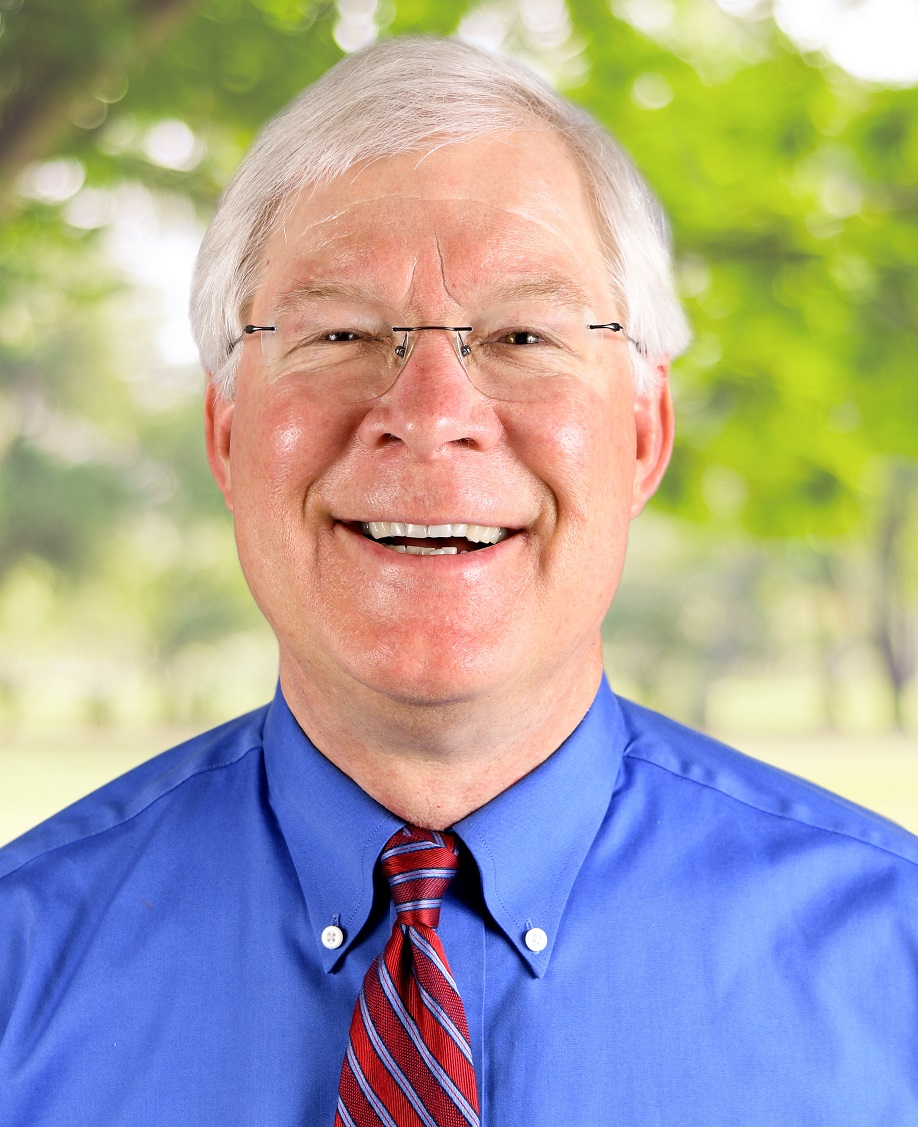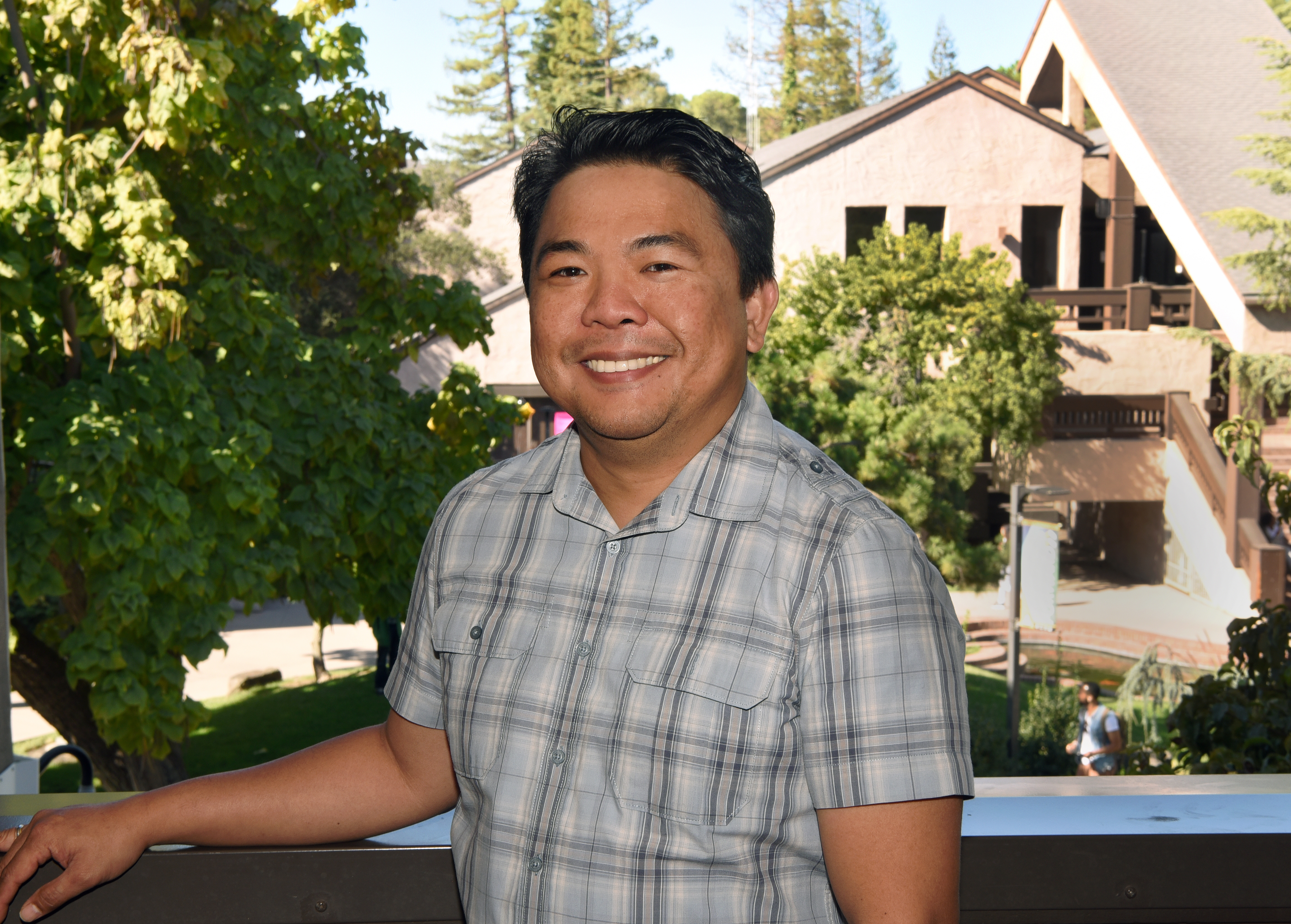
With hundreds of faculty members on the Delta College campus, picking two for distinguished faculty honors each year cannot be easy.
But there is a good reason that professors Bob Rennicks and Gerry Hinayon rose to the top for 2017-18.
Meet the honorees:
Bob Rennicks
Perhaps the strongest endorsement of Professor Bob Rennicks came not directly from a colleague, but from a student, who was quoted as saying: 
“If I could, I would take all of my classes with him.”
Rennicks teaches English 001B and many electives like British literature, mythology, the Bible as literature and world literature. He is known for his voluminous reading assignments, and students have risen to the challenge.
“His classes really prepared me,” a former Delta student who has transferred to U.C. Berkeley was quoted as saying in Rennicks’ nomination.
“In fact,” the student added, “I think I have read a lot more than most of the students in my class who have been at Berkeley all four years.”
In her nomination of Rennicks, Professor Sarah Antinora called him a “true innovator” in distance education, citing online and hybrid courses that are “engaging, rigorous and accessible to all students.”
Many other faculty have modeled their online courses after Rennicks’, she added.
She also called him a motivational mentor to his peers and to newer faculty. “He is ever-available for feedback and approaches his role as a coach,” she wrote.
Off campus, he has been praised for his support of The Write Place, which offers classes in poetry, fiction writing, journal making and book binding, among other things. The Write Place is part of the nonprofit Tuleburg Press, founded in downtown Stockton by fellow Professor Paula Sheil.
Rennicks accepted the award with humility. "Previous distinguished faculty have carried out amazing and inspiring deeds; in contrast, I have simply 'done my job' and tried to be helpful to others, both to my faculty colleagues and to my students. I am honored to be considered one of their company."
Gerry Hinayon
For all of the disasters he has responded to, for all of the traumatized people he has helped across the globe, psychiatric nurse Gerry Hinayon knows he couldn’t reach everyone.
That’s why his job at Delta College is so important. He is training the next generation of nursing students to do the same kind of work: to treat those wounds that cannot be seen.
And there is no need for his students to wander all over the world to do that. There is plenty to do right here at home.
“We go to homeless shelters, psychiatric hospitals,” Hinayon said. “You don’t have to travel to help people get better. You can do it right here. This is where you live.”
 Hinayon earned his bachelor’s degree in nursing at the age of 17. Too young to get a job, he volunteered for the Red Cross. And that’s how he found his calling.
Hinayon earned his bachelor’s degree in nursing at the age of 17. Too young to get a job, he volunteered for the Red Cross. And that’s how he found his calling.
Hinayon’s first disaster was the 1990 earthquake that killed more than 1,600 people in The Philippines. A 16-story hotel collapsed. Victims were trapped in the rubble for up to two weeks.
Hinayon went on to assist in the aftermath of two volcanic eruptions, two airplane crashes, two ferry shipwrecks, two additional earthquakes, one tsunami, a major hospital fire and a number of armed conflicts, storms and epidemics. And ultimately, he went to New York City after the Sept. 11 terrorist attacks.
He migrated to the United States in 2002 and worked as an operating room nurse in Manhattan before moving to Stockton with his wife, who is also a nurse. Hinayon worked as a nursing coordinator for St. Joseph’s Behavioral Health Center and later in the corrections system for the San Joaquin County Sheriff’s Office before coming to Delta.
What Hinayon found as a mental health nurse was that disaster victims are not the only ones in need of assistance. The rescuers themselves also need help to process everything they have seen. They live there. The victims are their friends and loved ones. And they are expected to keep doing their jobs long after everyone else leaves.
So Hinayon listened to them. And he watched for signs that the trauma had caused emotional damage.
“I take care of people who take care of people,” Hinayon said. “They receive secondary trauma from seeing all of it, but nobody talks to them about it. If you help them, they can actually help more people.”
The experience of helping others, while traumatic in itself, made Hinayon a stronger person because he himself received counseling afterward. And that’s a message he tries to instill in his students: If patients get help, and are treated with empathy and concern, good things can happen.
“That’s our belief in the nursing program,” he said. “Our product is hope and healing for patients and their family. We also believe in caring for the caregivers.”






